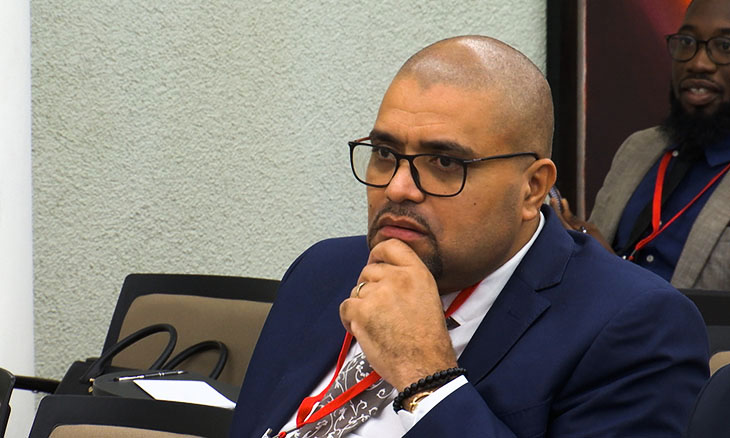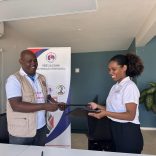Mozambique: MozYouth and Salesian Network join forces to promote youth employability
Mozambique: OAM – Mass failures are related to the quality of legal education

FILE - President of the Bar Association, Carlos Martins. [File photo: O Pais]
The Mozambican Bar Association (OAM) believes that mass failures are linked to the quality of legal education. However, it admits that it also has its responsibilities. Universities, on the other hand, say that care must be taken before pointing fingers at the quality of teaching. As part of the social responsibility of the organization he leads, the president of the Bar Association, Carlos Martins says that the organisation has already outlined guidelines to address the situation.
“We have already created a training office. We hired a training coordinator, approved a new
training regulation, and approved the content for initial and subsequent training. This was approved on February 14 of this year, and has already been published in the Official Gazette,” he explained.
Carlos Martins said, however, that he does not yet know if this model will have the desired effects, as its implementation began in May and exams will only be held six months from now. Another solution found is to transform the Legal Aid Institute, where lawyers from all over the country will practice law, as a way to address not only deficiencies in university education but also in primary and secondary education.
The dean says that now is not the time to point fingers at anyone, only to seek solutions.
Universities say care must be taken before pointing fingers at teaching quality The director of the Law Faculty of UEM and the scientific director of Alberto Chipande University say that care must be taken before concluding that institutions lack teaching quality, as there are criteria that need to be taken into account.
According to Eduardo Chiziane, the issue of “the problem of teaching quality is complex” because there are criteria established to make such measurements, such as the employability level of graduates from a specific institution. The higher the number absorbed, the better the university prepares its students, so there is no structure to measure whether the problem lies in quality.
Chiziane believes that a participatory analysis of the Centre for Legal and Judicial Training,
faculties, and the students themselves is necessary. “This would, from a diagnostic point of view, give us the real picture of the situation, and after that, we would then be in a position draw conclusions. There are perceptions, but these perceptions must be spoken with limits, taking into account that we are in a context of high technological evolution and that our education is not keeping up with it. So, we need to review that,” the director said.
Chiziane said that, based on this diagnosis, the best decisions can be made to reverse the situation, especially since the number of lawyers in the country still does not meet the needs.
The scientific director of Alberto Chipande University, Paulo de Sousa, shares a similar understanding. He said that higher education institutions have administrative, patrimonial, financial and pedagogical autonomy.
“It is not appropriate to say, from the outside, that a particular institution lacks quality because the results for some entity or professional order are failing. It is necessary to reflect on the interests of these institutions, looking at their mission and vision, and reflecting on their scientific autonomy,” de Sousa explained.
Furthermore, De Sousa says that professional orders need to sit down and work with higher education institutions and vice versa, but it is also necessary to evaluate the admission processes of these bodies – “who is evaluating, how the questions are being asked”, because, according to him, if the questions are not well posed, according to pedagogical principles, they can “mislead and confuse students.”













Leave a Reply
Be the First to Comment!
You must be logged in to post a comment.
You must be logged in to post a comment.